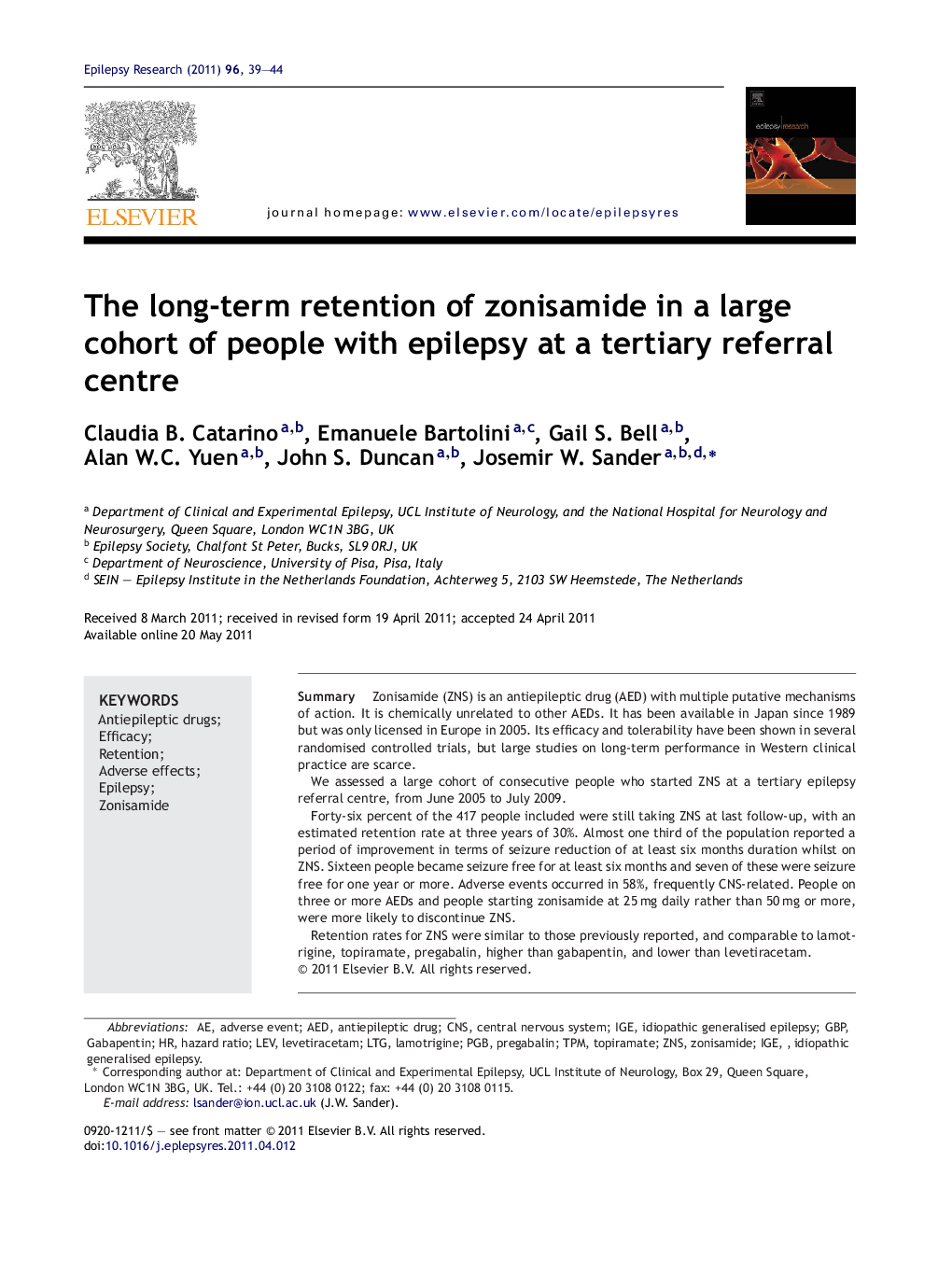| Article ID | Journal | Published Year | Pages | File Type |
|---|---|---|---|---|
| 3052384 | Epilepsy Research | 2011 | 6 Pages |
SummaryZonisamide (ZNS) is an antiepileptic drug (AED) with multiple putative mechanisms of action. It is chemically unrelated to other AEDs. It has been available in Japan since 1989 but was only licensed in Europe in 2005. Its efficacy and tolerability have been shown in several randomised controlled trials, but large studies on long-term performance in Western clinical practice are scarce.We assessed a large cohort of consecutive people who started ZNS at a tertiary epilepsy referral centre, from June 2005 to July 2009.Forty-six percent of the 417 people included were still taking ZNS at last follow-up, with an estimated retention rate at three years of 30%. Almost one third of the population reported a period of improvement in terms of seizure reduction of at least six months duration whilst on ZNS. Sixteen people became seizure free for at least six months and seven of these were seizure free for one year or more. Adverse events occurred in 58%, frequently CNS-related. People on three or more AEDs and people starting zonisamide at 25 mg daily rather than 50 mg or more, were more likely to discontinue ZNS.Retention rates for ZNS were similar to those previously reported, and comparable to lamotrigine, topiramate, pregabalin, higher than gabapentin, and lower than levetiracetam.
